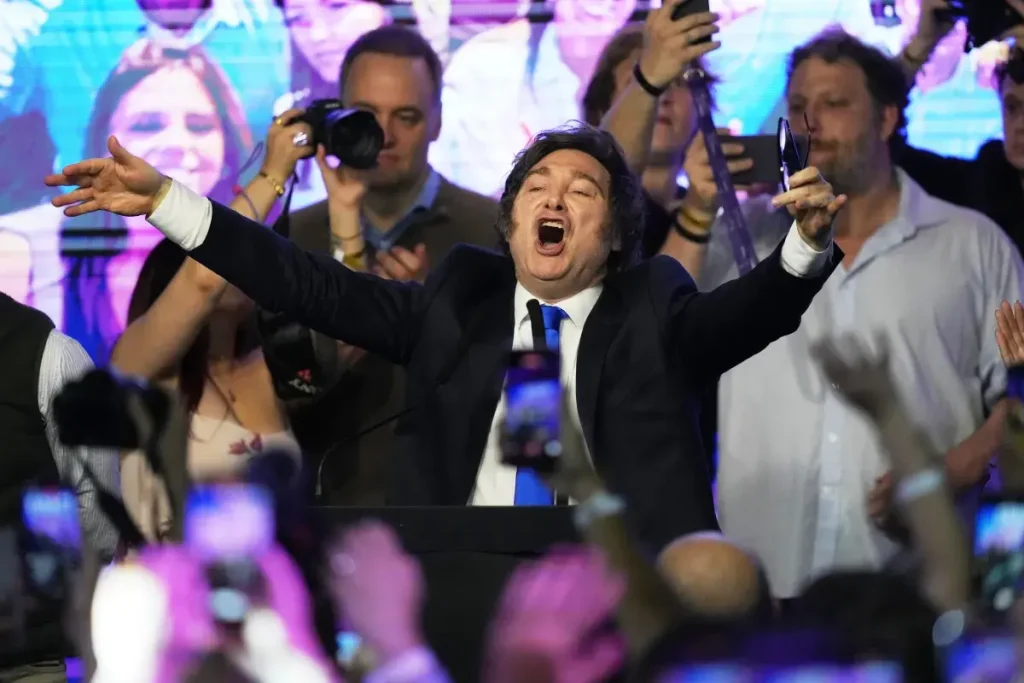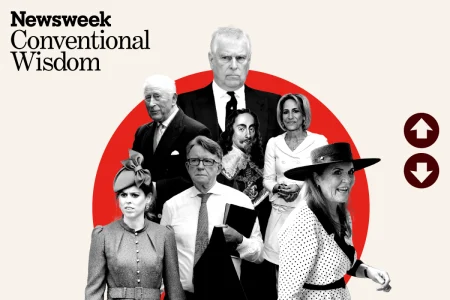Argentina’s Milei Secures Electoral Victory and Trump’s Financial Support
In a significant political development, Argentina’s libertarian President Javier Milei has achieved a decisive victory in Sunday’s midterm elections, cementing his mandate to continue his radical free-market reforms. The election results showed his La Libertad Avanza party securing over 40 percent of votes, winning 64 seats in the Chamber of Deputies and 12 in the Senate. This remarkable electoral performance comes at a crucial moment for Argentina’s economic recovery efforts and strengthens Milei’s position as he implements controversial austerity measures. Celebrating with supporters in Buenos Aires, Milei declared that “the Argentine people left decadence behind and opted for progress,” even singing lines from a death-metal song that has become his political anthem. The victory represents a significant shift in Argentine politics, with the traditional left-leaning Peronist opposition recording one of its poorest performances in years with just over 31 percent of the vote.
The election results carry particular significance due to the direct financial implications tied to U.S. support under President Donald Trump. Prior to the vote, Trump had explicitly connected Argentina’s electoral outcome to American financial assistance, warning bluntly: “If he doesn’t win, we’re gone.” With Milei’s victory now secured, Argentina stands to receive a substantial $20 billion currency swap from the United States, a highly unusual form of bilateral financial support designed to stabilize the Argentine peso. Trump wasted no time congratulating Milei on his “landslide victory” through social media, stating that “he is doing a wonderful job!” and that “our confidence in him was justified by the People of Argentina.” U.S. Treasury Secretary Scott Bessent had previously announced plans to raise an additional $20 billion from private investors, underscoring the magnitude of American financial commitment to Milei’s government.
Since taking office in 2023, Milei has implemented drastic economic measures that have dramatically reshaped Argentina’s financial landscape. His austerity program has included slashing energy and transport subsidies, laying off tens of thousands of government workers, freezing public infrastructure projects, and imposing wage and pension restrictions below the inflation rate. While these policies have sparked domestic controversy and hardship, they have also produced remarkable results in fighting Argentina’s chronic inflation, bringing it down from a staggering 211 percent to approximately 32 percent in less than a year. This economic turnaround has won praise from international markets and financial institutions, though it has come at a significant cost—interest rates remain at 80 percent, unemployment has increased, real wages are depressed, and economic growth has stalled.
The electoral victory effectively gives Milei a mandate to continue these controversial policies despite their social costs. Political analysts see the results as a sign that many Argentinians are willing to endure short-term pain for the promise of long-term economic stability. As Gustavo Cordoba, director of the Argentine polling firm Zuban Cordoba, noted to Reuters: “Many people were willing to give the government another chance…. We’ll see how much time Argentine society gives the Argentine government. But the triumph is unobjectionable, unquestionable.” What makes this outcome particularly notable is that it occurred despite the economic hardships many Argentinians are currently experiencing, suggesting a level of patience with Milei’s approach that surpasses immediate self-interest. The voter turnout, at nearly 68 percent, was among the lowest since Argentina’s return to democracy in 1983, which may reflect both disillusionment among some voters and confidence among Milei’s supporters.
The geopolitical implications of this election extend well beyond Argentina’s borders. The substantial U.S. financial backing for Milei’s government represents not just economic support but a strategic move to maintain American influence in Latin America, a region where China has been steadily expanding its economic and diplomatic presence. Trump’s willingness to commit significant financial resources to Argentina signals the importance the United States places on having ideologically aligned governments in the region. For Milei, who has enthusiastically embraced Trump’s political style and rhetoric—even borrowing the slogan to “make Argentina great again”—this alliance provides both legitimacy and crucial financial backing at a time when his country continues to face severe economic challenges. The partnership between the two leaders represents a notable convergence of right-wing, free-market ideologies across the Americas.
Looking ahead, Milei now has a stronger political position to continue his economic transformation program until the next presidential election in October 2027. However, significant challenges remain. The human cost of his policies continues to be felt across Argentine society, with many citizens struggling under the weight of reduced public services, higher costs of living, and limited economic opportunities. The question now becomes whether Milei can translate his electoral success and international financial support into tangible improvements in everyday Argentinians’ lives before public patience runs out. If successful, his approach could represent a dramatic shift in Latin American economic policy, moving away from the region’s historical pendulum swings between populism and austerity toward a more sustained free-market model. As Milei himself declared to his supporters, “Today we passed the tipping point—the construction of a great Argentina begins.” The world will be watching closely to see if his vision of economic liberation can deliver on its promises.















